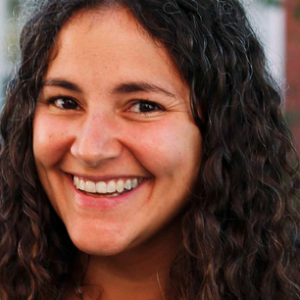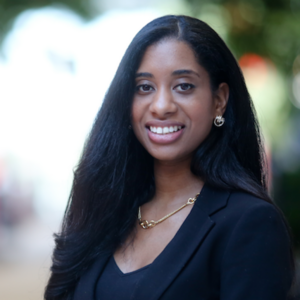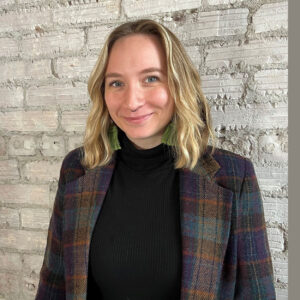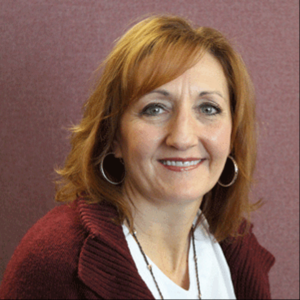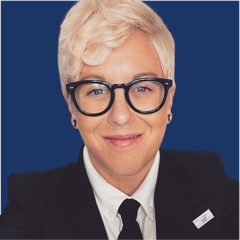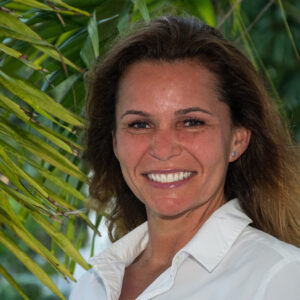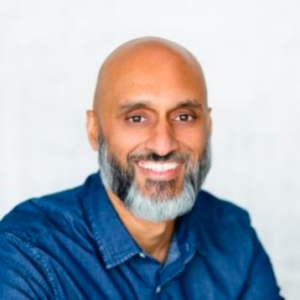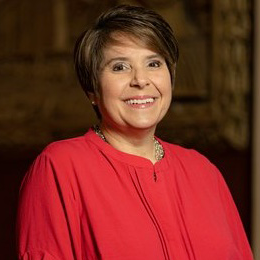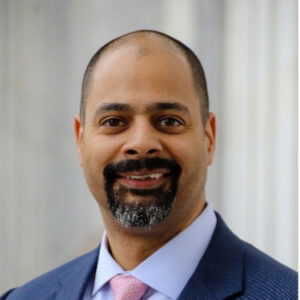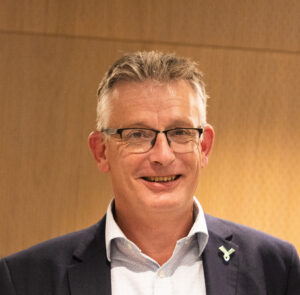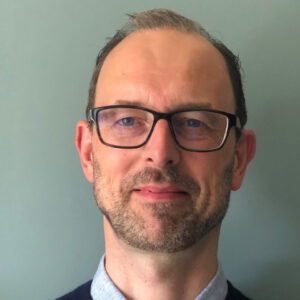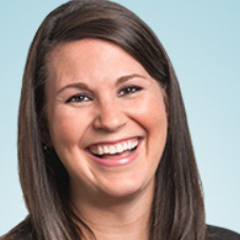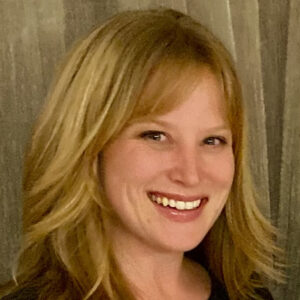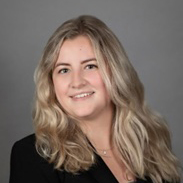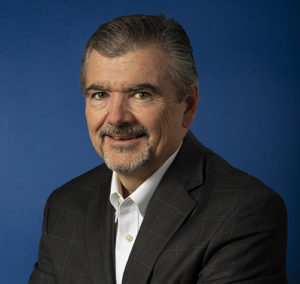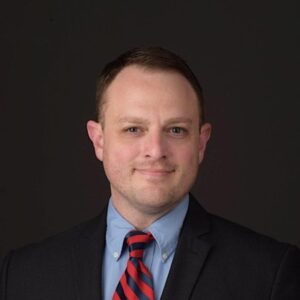Conference Schedule
Tuesday, January 23
Day 1: Individual Well-Being (Track A)
10:45-11:15 ET
Conference Welcome, Reed Smith Well-Being Award Presentation
11:15-12:15 ET
12:15-12:45 ET
Break
12:45-1:45 ET
Change & Well-Being: Adaptively Managing Change and Uncertainty to Promote Thriving at Work and Home
January 23, 2024 | Start Time: 12:45pm ET | Duration: 60 Minutes
1:45-2:00 ET
Break
2:00-3:00 ET
Setting Boundaries 101: Building a Blueprint for a More Balanced Life
January 23, 2024 | Start Time: 2:00pm ET | Duration: 60 Minutes
Setting boundaries is a critical element of any leader's skillset and an important strategy for avoiding burnout. Yet far too many lawyers, law students, and legal professionals let their drive to succeed and tendency for people-pleasing prevent them from reaching their highest potential. In this interactive workshop, you'll learn about mindsets and behaviors that lead to burnout and gain a clear understanding of how boundaries can help you break these destructive patterns. You will also walk away with a toolkit of strategies for setting and enforcing boundaries that will enhance your relationships, mitigate overwhelm, and turbocharge your performance
Learning Objectives:
At the end of this session, participants will be able to:
- Understand and articulate the ways in which failing to set boundaries can negatively impact health, happiness, and productivity while contributing to burnout
- Explain and implement practical strategies for helping individuals and teams identify, communicate, and enforce effective boundaries and overcome the challenges that make boundary-setting difficult in the context of the legal profession
- Apply these strategies to one aspect of their personal or professional lives around which they are looking to obtain greater balance and control
3:00-3:15 ET
Break
3:15-4:15 ET
Unleashing The Power of Purpose: Why Purpose Matters and Why You Must Have It to Thrive in Career, Business, and Life
January 23, 2024 | Start Time: 3:15pm ET | Duration: 60 Minutes
The Spiritual dimension of the six dimensions of life outlined in the 2017 ABA Report Path to Lawyer Well-Being may be the least concrete and most esoteric dimension to understand, at least on the surface. Yet, if explored, pursued, and mastered, the Spiritual dimension can be the gateway to thrive in the remaining five dimensions of life as set forth in the report. The Spiritual dimension is not about religion or faith. It is about connecting with the sacred or something bigger than oneself by a developing sense of meaning and purpose in life; and in moments of life. In this interactive program, participants will learn what it means to have purpose in life; how one might go about pursuing purpose; and how this hidden power can turbocharge other areas of one's life. When understood and cultivated properly, meaning and purpose can be our lighthouse beaming from distant shores, our anchor in rough seas, and our North Star on dark night.
At the conclusion of this presentation participants should:
- Understand what meaning and purpose looks like in the context of the spiritual dimension of a lawyer's life
- Be able to implement concrete yet simple practices to discover and consistently live out their meaning and purpose in life
- Feel empowered by knowing that purpose and meaning can serve as the North Star to living a thriving life.
4:15-4:30 ET
Break
4:30-5:30 ET
Rethinking Thinking Like a Lawyer
January 23, 2024 | Start Time: 4:30pm ET | Duration: 60 Minutes
Law school and the practice of law train attorneys to “think like a lawyer,” which includes legal analysis, risk-aversion, attention to detail, and strong judgment in challenging situations. While this skeptical mindset may be appropriate and desirable in certain aspects of the practice of law, these professional advantages can come with serious personal costs. Specifically, pessimism can carry a significant risk for mental health challenges. Indeed, lawyers struggle with high rates of depression, anxiety, and substance use. And yet, legal service presents tremendous opportunity for attorneys to experience a career that is high in meaning, purpose, and occupational well-being. In February 2022, the American Bar Association amended Standard 303 to require law schools to provide “substantial opportunities to students for the development of a professional identity.” For more experienced attorneys, these questions of professional identity may be new but the concept relates to the strength-based approach positive psychology has long employed. As the next generation of law students becomes well-versed in professional identity and their own strengths, we encourage their future supervisors and colleagues to consider the same themes. Join us to reflect on your own strengths, identities, values, motivations, and aspirations as a professional, informed by our respective experience in teaching professional identity curriculum and in the application of positive psychology at a legal employer. Help discover – or rediscover – your “why” in our interactive workshop.
At the conclusion of this presentation participants should:
- Understand the ABA standards requiring instruction on professional identity, define professional identity and how it applies to legal practice at any level and in any area
- Develop an understanding of the relationship between well-being and professional identity
- Learn concrete skills based on the science of Positive Psychulogy for developing and sustaining a strong professional identity in practice. Example skills include the application of character strengths, personal values, relationships, and intrinsic motivation.
Wednesday, January 24
Day 2: Individual Well-Being (Track B)
10:45-11:00 ET
MC Opening Remarks
11:00-Noon ET
Journeys Unveiled: Navigating Mental Health and Advocacy for Black Women in the Legal Profession
January 24, 2024 | Start Time: 11:00am ET | Duration: 60 Minutes
Black women in the legal profession often face distinct challenges in their pursuit of wellbeing. This panel aims to explore a critical and often overlooked aspect of wellbeing in the legal field – the unique experiences of black women legal professionals who have lived experience with mental health challenges and who have used their experience and journey to become advocates for the profession as a whole. This topic holds immense significance as it sheds light on the intersectionality of gender, race, and disability factors that profoundly impact their journey in a profession that lacks diverse representation and voices of color in mental health.
The panel is designed to engage the audience through the following 6 strategies:
- Authentic Stories: The panel consists of black female legal professionals who each have a unique and personal experience with mental health, making their narratives deeply relatable and impactful. By sharing their personal journeys, struggles, and triumphs, the panelists will create a strong emotional connection with the audience, facilitating a deeper understanding of the challenges faced by black women in the legal profession.
- Thought Leadership and Expertise: With their expertise as mental health advocates and thought leaders in the legal space, the panelists bring a wealth of knowledge and practical insights. Their thought leadership on mental health inclusion and belonging (including the distinction black women face with imposter syndrome), workplace mental health, wellbeing tools and resources and self-advocacy considerations in the legal field and the profession as a whole will enrich the audience's understanding of the subject matter and open avenues for discussion.
- Intersectionality and Representation: The intersectionality of gender, race, and disability in the legal profession will be highlighted, giving voice to a perspective that has historically been underrepresented. This aspect will help the audience gain new perspectives on the challenges each woman faced on their path for connection and relatability.
- Interactive Discussions: Attendees will have the opportunity to ask questions, share their experiences, and connect directly with the panelists, making the session more dynamic and engaging.
- Practical Tools and Takeaways: The panel's focus on sharing actionable and practical tools derived from the panelists' own experiences will empower the audience. The panel will also provide tools and takeaways to become an ally for Black women in the legal profession in the realm of mental health. Attendees will leave the session equipped with valuable strategies, tools and resources to support their journey to creating a path of authentic mental wellbeing and learn how to become a powerful ally to others.
- Inspirational Journeys: By showcasing the panelists' journeys to stability and wellbeing, the panel aims to inspire other attendees who may be facing similar challenges. The stories of resilience and success will motivate the audience to embrace wellbeing as a core aspect of their professional lives. The panel will also provide articles and additional resource information for the audience to be supported and learn more about specific areas after the session.
Noon-12:30 ET
Break
12:30-1:30 ET
Cool Under Pressure: The Legal Professional's Guide to Managing Difficult Emotions
January 24, 2024 | Start Time: 12:30 pm ET | Duration: 60 Minutes
Every day, legal professionals face challenges that evoke a storm of emotions, from anger to remorse. But what if you could not just endure these emotions but transform them into fuel for peak performance?
Led by a biglaw attorney-turned-psychologist, this workshop offers concrete methods to thrive in the tempest of the legal world. You'll learn how to remain calm and focused in intense situations, respond thoughtfully rather than impulsively, and transmute anxiety into supportive energy.
At the conclusion of this presentation participants should:
- Identify and navigate the range of challenging emotions common in the legal profession, understanding their triggers and potential impacts on decision-making and interactions.
- Apply concrete techniques to remain centered, well, and effective during high-pressure situations.
- Channel difficult emotions into positive motivation and enhanced performance.
1:30-1:45 ET
Break
1:45-2:45 ET
The Perfectionist Paradox: Why Your Mindset Isn't Promoting Well-Being or Peak Performance and How to Cultivate One That Will
January 24, 2024 | Start Time: 1:45pm ET | Duration: 60 Minutes
Many lawyers and legal professionals would be shocked to learn that the perfectionism they wear as a badge of honor actually prevents them from reaching their highest potential. But there's a key difference between perfectionism and the pursuit of excellence, and it turns out that the former (and the ruthless inner critic that drives it) can indeed be the enemy of the latter.
In this interactive program, led by certified professional coach and Positive Lawyering professor Jordana Confino, participants will:
- Increase their awareness of the thoughts, emotions, and behaviors that underlie their perfectionistic tendencies
- Examine the costs that perfectionism takes on their personal and professional lives, and “unbundle” the positive aspects of their perfectionism from those that are harmful
- Take steps to cultivate kinder self-talk, a growth mindset, and a more optimalist approach that will turbocharge their well-being, motivation, and performance
2:45-3:00 ET
Break
3:00-4:00 ET
Emotional Freedom Techniques (EFT) for Lawyers: Building Calm, Clarity, Resilience, and Pleasure in Our Legal Practice
January 24, 2024 | Start Time: 3:00 pm ET | Duration: 60 Minutes
As lawyers, the push for productivity, more clients, more billable hours, and more revenue, has taken a toll on our minds and bodies. This workshop will demonstrate a powerful tool to address this. As clients make continued demands on our expertise and time, our practices become increasingly challenging. Even when we are not working in law firms, the pressures we face in not-for-profits and the government are just as concerning because of the lack of resources. We continue to witness the negative impact on our colleagues and ourselves ranging from anxiety, physical pain, addiction, all the way to suicide. Lawyers are trained to manage all problems by only relying on intellect. It is critical to build our resilience with increased emotional and spiritual well-being. This is what allows us to experience more pleasure in our legal practice and build strong supportive communities. Increased emotional and spiritual reserves facilitates greater productivity. Emotional Freedom Techniques (EFT), also known as tapping, is one of the most efficient and effective tools to alleviate anxious feelings, physical discomfort, addictions, which creates emotional and spiritual well-being. It is an accessible technique that people can use at their workplaces in moments of distress or use at home to recover after a stressful day.
4:00-4:15 ET
Break
4:15-5:15 ET
Building your Rest Ethic: Power Principles for Strategic Renewal
January 24, 2024 | Start Time: 4:15pm ET | Duration: 60 Minutes
According to the NYSBA Attorney Well-Being Survey 2020, some of the factors having the greatest impact on lawyer well-being were cited as “lack of boundaries”, “no downtime” and “never off”.
Rest and restoration are essential practices that are under-utilized in lawyers. This session will give us tools to build our Rest Ethic- a skill built on strategic renewal, an intentional practice of slowing down and investing in restorative rest.
Learning Objectives:
- Explore our relationship to rest, as lawyers, and what gets in the way.
- Understand the critical role that rest plays in cultivating resilience.
- Identify internal vs external recovery practices
- Implement a framework using the 7 Power Practices for Restoration.
Wednesday, January 24
Day 2: State & Local Task Forces
10:45-11:00 ET
MC Opening Remarks
11:00-12:30 ET
Leading the Charge: Innovative Systemic Approaches to Well-Being in the Legal Profession, Presented by State and Local Task Forces
January 24, 2024 | Start Time: 11:00am ET | Duration: 90 Minutes
Join us for this dynamic conference session where state and local bar leaders will share their innovative approaches to prioritizing mental health and well-being within the legal profession. Explore how they are actively leading the charge for positive change and fostering well-being among paralegals, attorneys, and judges. Attendees can expect to leave this session with a wealth of fresh ideas and actionable strategies ready to be implemented within their own organizations, making a meaningful impact on the well-being of the profession.
12:30-1:00 ET
Break
1:00-2:30 ET
Continuing the Conversation with State and Local Task Forces: Legal Well-Being Round Table
January 24, 2024 | Start Time: 1:00pm ET | Duration: 90 Minutes
In this follow-up session, join us for a round table discussion with the state and local bar leaders who shared their innovative approaches to prioritizing mental health and well-being during the previous session. Dive deeper into their experiences, learnings, and successes, and get ready to engage in an interactive dialogue. This is your opportunity to ask questions, seek advice, and explore the practical implementation of their strategies. Walk away with invaluable insights and personalized guidance for promoting well-being within your own legal organization.
2:30-2:45 ET
Break
2:45-3:45 ET
Advocacy 101: Advancing Policy to Promote and Support Well-Being Initiatives
January 24, 2024 | Start Time: 2:45pm ET | Duration: 60 Minutes
This presentation is designed to equip state and local well-being leaders with the knowledge and skills needed to advance well-being policy initiatives within their organizations, courts, and the broader legal community. Participants will learn how to evaluate existing well-being policy initiatives, how identify areas for improvement, and how to advocate for positive change. Participants will be provided practical tips for promoting policy that supports well-being through effective communication, organizing stakeholders, and engagement with policy makers within the profession.
3:45-4:00
Break
4:00-5:00 ET
Lawyer Well-Being and Embodied Social Justice Reform
January 24, 2024 | Start Time: 3:00pm ET | Duration: 60 Minutes
During this presentation attendees will be provided practical tools and research relating to lawyer well-being and how individual and community healing may affect positive social change. Topics covered will include mindfulness-based interventions for reducing stress, compassion fatigue, burnout, and secondary trauma; the mind-body connection and breath-work practices to support greater well-being; the personal, professional, and prosocial benefits of cultivating a mindfulness practice; and how lawyer well-being movements illuminate paths to embodied social justice reform.
Learning Objectives:
- Learn how research-backed individual mindfulness and breath work practices can contribute to positive social change.
- Learn how individual well-being is linked to prosocial contagion.
- How Being Kind Louder can contribute to embodied social justice reform.
Thursday, January 25
Day 3: Workplace Well-Being
10:45-11:00 ET
MC Opening Remarks
11:00-Noon ET
Smarter Collaboration for Better Health and Wellbeing
January 25, 2024 | Start Time: 11:00am ET | Duration: 60 Minutes
Stressors like heightened internal and client expectations, economic headwinds, rapidly evolving technology, and burgeoning workloads are taking their toll, causing one in four employees globally to feel burned out. Research shows that the effect on lawyers and law firm staff is even higher.
These factors are compounded by the tension of office versus home working, which requires new, creative ways to collaborate within and between teams that are increasingly siloed and fragmented. Not only is this standing in the way of performance and innovation, but it is contributing to the experience of isolation; limited visibility of one’s true self; lack of drive; and a weaker sense of community or belonging. These repercussions can hit less tenured and under-represented groups especially hard.
In this highly interactive session, we will explore the science of how smarter collaboration—a deliberate way of collaborating that leverages diverse viewpoints and strengths—mitigates the negative health effects of today’s workplace demands and create an environment where colleagues can understand and play to their strengths, and thrive by being authentic.
Following our presentation, participants will be able to:
- Have a solid understanding of what smarter collaboration looks like in day-to-day legal work, including how it sparks diversity and inclusion
- Understand the short- and long-term mental health benefits of smarter collaboration in the legal sphere
- Apply three smarter collaboration practices right away to boost their well-being and the health of others
12:30-12:30 ET
Break
12:30-1:30 ET
Identity-Based Well-Being: The Impact of Recent Legal Developments on Legal Professionals from Marginalized Populations (IWIL DEI Committee)
January 25, 2024 | Start Time: 12:30pm ET | Duration: 60 Minutes
1:30-1:45 ET
Break
1:45-2:45 ET
Lawyering Is Hard, Leadership Doesn't Have to Be — 3 Tips for Engaging Leadership
January 25, 2024 | Start Time: 1:45pm ET | Duration: 60 Minutes
Finding success as an attorney can be challenging and often pushes attorneys to the edge of well-being sustainability. Layering supervisory, managerial, and/or leadership responsibilities on top of their individual work can feel like an insurmountable challenge or one that requires sacrificing our time, energy, and attention. Legal leaders at all levels want to provide their clients with the best service, to develop a thriving and sustainable practice, and to feel like they are moving their firms and legal organizations forward, not just keeping pace. They are best able to do that when they have the confidence and the skills lead with influence, not just authority. This presentation will discuss the importance of collaborative and compassionate leadership and will provide participants with practical skills they can put into practice right away to increase engagement, build trust, and give them the confidence to move beyond reliance on directive leadership.
This presentation will leave participants with:
- An understanding of the added well-being impact of being in leadership/managerial positions;
- Familiarity with the impact a leader's/manger's style and approach to leadership can have on employee/associate engagement; and
- Exposure to three practical skills that can be implemented immediately to both increase employee/associate engagement and support leader/manager well-being.
2:45-3:00 ET
Break
3:00-4:00 ET
Client Driven Culture Change: A New Frontier in the Well-Being Movement
January 25, 2024 | Start Time: 3:00pm | Duration: 60 Minutes
Modeled on the Mindful Business Charter (which has been adopted by a broad base of large law firms and banks as reflected here), US Bank and seven roundtable law firms collaborated to create the outside counsel engagement guidelines. Both the charter and the guidelines are intended to help clients and their outside counsel interact with well-being in mind, and cover topics such as out of office time, emergencies, communication habits and preferences, and other topics. The Mindful Business Charter and guidelines are the topic of this discussion, and are a way to drive small but meaningful change in people's daily lives — which have significant effects on their day-to-day well-being. We will talk about the Gallup (and other) data showing the impact of direct supervisors (for partners, that's clients!!) on well-being and how the charter and guidelines create space for conversations around out of office time, reasonable deadlines, true emergency issues, and connection between professionals. If we can start the conversation around these changes, we begin to change culture — the interstitial way that we interact together — within the larger legal industry. These small moments create meaningful and impactful change in our lawyers' daily lives. The audience will have the opportunity to answer polls and other interactive media and ask questions of the panelists, who have adopted the guidelines or the charter as part of the way they work.
Learning Objectives:
- Introduce a proven, effective way to implement small changes that can drive culture change
- Teach practical ways that small interstitial moments can drive meaningful changes in well-being and create better relationships between outside and in house counsel
- Model and discuss ways to ease communication burdens for underrepresented or marginalized groups
4:00-4:15 ET
Break
4:15-5:15 ET
3 Keys to Success: Using Resources, Trainings and Partnerships to Create a Mental Health Support Infrastructure
January 25, 2024 | Start Time: 4:15pm | Duration: 60 Minutes
Creating an environment where “it's okay to not be okay” means normalizing, encouraging, and welcoming conversations about mental health. While more and more firms are investing in this area, it can be challenging to scale resources and programming in a way that drives broad engagement and cultivates a culture of well-being. This session will provide a roadmap for developing a strategy that extends the reach of your Well-Being team and drives mental health literacy at every level of the firm.
Learning Objectives:
- Participants will learn how their mental health training strategy can also be part of their well-being engagement strategy.
- Participants will learn how an inclusive and collaborative development process for mental health-related training programs can contribute to overall program success and engagement.
- Participants will walk away with a roadmap to creating an environment that normalizes, encourages, and welcomes conversations about mental health
Thursday, January 25
Day 3: Law School Well-Being
10:45-11:00 ET
MC Opening Remarks
11:00-Noon ET
Courageous Leadership and Storytelling as a Gateway to Mental Health and Well-Being: Empowering Law Students as Healthy Future Leaders
January 25, 2024 | Start Time: 11:00am ET | Duration: 60 Minutes
Studies have found that the mental health of law students declines during their studies and that it commences to decline in the first year of legal education. Studies of the legal profession internationally have found that lawyers either suffer or report suffering mental health problems at a rate greater than that of the general population and greater than that of other professions. Research suggests attorneys suffer higher incidences of suicide, depression, and substance abuse than other professions; however, very few studies addressed lawyers' psychological well-being and what constructive steps we can make to improve lawyer and law student well-being.
The Quinnipiac University School of Law has developed an integrative program to assist law students in improving lawyer and law student well-being, framed as developing personal and professional leadership through creative approaches, including storytelling.
In the Quinnipiac Law School program, as well as other programs with law students and lawyers, we have found improvements in both attendance and positive engagement by (i) framing these discussions as “leadership” development and/or professional development, which overcomes the resistance to “going to that mental health thing;” and (ii) breaking down the conversation into small, moderated group discussions that occur over a continuous period of time. This creates community and a space for psychological safety, increasing the openness of sharing, storytelling and engagement.
We found storytelling in particular to be a powerful tool. The storytelling component can take various approaches, including the sharing of personal stories, challenges, and experiences and using media such as film as a tool to engage students with tapping into our shared humanity and experiences.
The Quinnipiac course applies research about best practices in legal education and lawyer effectiveness by mixing practical lawyering skills with empowering leadership skills to humanize the law school experience and support being a whole, healthy lawyer. It is based on the integrative law model, which is a values-based approach to practice that serves to broaden future lawyers’ understanding of the possibilities of law practice through collaborative and creative approaches to legal work, including storytelling. As an experiential course, students learn to apply relevant leadership skills such as empathy, authenticity, and adaptivity to their course work. Among other assignments, students design their own conflict management systems; negotiate using integrative law principles; design their own well-being plans; and learn to be future changemakers in the law. The course also includes mentorship pods that meet weekly with lawyer well-being experts to explore various topics, including autonomy, mindfulness, emotional intelligence, boundaries, and play redefining “professional identity” in a manner that prioritizes long-term well-being. In this small group setting, students are encouraged to vulnerably connect with peers by sharing challenging experiences, an approach not typically found in the competitive vortex of law school. Through these interactions, students also practice valuable leadership skills, including active listening, giving and receiving feedback and empathy.
We aim to teach students how to show up powerfully in their leadership by incorporating mental health literacy through engaging with storytelling to support long-term satisfaction in the profession.
Learning Objectives:
- How to incorporate mental health literacy in the curricula through engaging with storytelling.
- Explore various approaches to storytelling, including using personal stories and media, such as film, to engage students to tap into our shared humanity.
- Use the power of storytelling to open hearts, improve mental health, empower courageous leadership, and foster collaboration and connection
Noon-12:30 ET
Break
12:30-1:30 ET
Trauma-Informed Practices to Support Well-Being in Law School
January 25, 2024 | Start Time: 12:30 pm | Duration: 60 Minutes
This panel will be moderated by a law professor who will engage three law students with professional and personal expertise related to trauma-informed care. The conversation will center on how trauma-informed practices in legal education can promote and support well-being in law school. The panel will entertain questions from the audience. Panelists will create tips and tricks for including trauma-informed practices in legal education.
1:30-1:45 ET
Break
1:45-2:45 ET
Emotional Intelligence: The Path to Lawyer Well-Being
January 25, 2024 | Start Time: 1:45pm ET | Duration: 60 Minutes
Emotional intelligence (“EQ”) is the single biggest predictor of success in leadership. Unlike IQ, EQ is not static and can be taught, and that's what this session, “Emotional Intelligence: The Secret Sauce For Lawyer Well-Being” is about. Lawyers with high EQs will be more successful and resilient; they will be better communicators; they will navigate through challenges and change more effectively; and they will be better at conflict resolution, all of which leads to a more satisfying and engaged culture. The key skills that attendees will learn, refresh and/or enhance include:
- Accurately perceiving their own emotions in the moment and gaining a keen understanding of their tendencies across situations
- Staying on top of their typical reactions to specific events, challenges and people; *Using awareness of their emotions to stay flexible and direct their behavior positively and productively
- Tolerating uncertainty and discomfort, and directing their emotional responses to situations and people
- Recognizing and understanding the emotions of others
- Connecting with others by being present and listening deeply and attentively
- Using awareness of their own emotions and the emotions of others to manage interactions successfully
- Deepening connections.
2:45-3:00 ET
Break
3:00-4:00 ET
Bar Admissions & Law Student Well-Being: Between a Rock and a Hard Place
January 25, 2024 | Start Time: 3:00pm ET | Duration: 60 Minutes
This session will provide an update on bar admissions and the impact on law student well-being. We will focus on recent issues in character and fitness reform, and a proposal pending before the ABA to reform the Model Rule on Conditional Bar Admission.
4:00-4:15 ET
Break
4:15-5:15 ET
Helping Law Students Flourish in a Community of Inquiry
January 25, 2024 | Start Time: 4:15pm ET | Duration: 60 Minutes
In 2018, Professor Debra S. Austin called for a Positive Legal Education movement. Unfortunately, the COVID pandemic stalled momentum. However, from the pandemic, law professors rediscovered the Community of Inquiry pedagogical framework. The CoI was important in helping students and teachers maintain a sense of community during isolation. This presentation renews the call for a Positive Legal Education movement and describes how law schools can implement a Community of Inquiry across the curriculum, not just clinical or online courses.

